

Designing Intelligence, Transforming the Future Computer
What Will I Learn?
At Computer Engineering (CEG), offered jointly by the Electrical and Computer Engineering (ECE) Department and the School of Computing, you will acquire a strong foundation in both hardware and software, as well as how they interact to create modern computing systems. The programme spans a wide array of topics, enabling you to explore areas such as:
Computer Architecture and Hardware Design
You’ll learn how computer systems are designed, including microprocessors, memory systems, and embedded systems, as well as how hardware and software interact.
Digital Logic and Systems Design
This includes learning about digital circuits, logic gates, and how digital systems are implemented in hardware.
Software Development
You’ll acquire problem-solving and systems design skills using programming languages like C, C++, Python, and Java.
Operating Systems
You’ll explore how operating systems manage hardware resources, enable multitasking, and support software applications.
Data Structures and Algorithms
You’ll develop the ability to design efficient algorithms and data structures, which are crucial for solving computational problems and optimising software performance.
Networking and Communications
You’ll have a chance to explore cutting-edge topics such as computer networks, network protocols, wireless communications, and quantum communications.
Embedded Systems
This area covers the integration of computing into everyday devices, focusing on systems design for performance, power efficiency, and real-time processing.
Artificial Intelligence and Machine Learning
You’ll explore foundational AI concepts, algorithms, and their applications in areas like robotics, data analysis, and smart systems.
Cybersecurity
You’ll study secure computing practices, cryptography, and methods for protecting computer systems and data from threats.
Digital Signal Processing
This involves manipulating signals such as audio, video, and sensor data, crucial for fields like multimedia, telecommunications, and sensor networks.
Practical Experience
The curriculum offers opportunities for hands-on learning through lab work, projects, internships, and industry collaborations, allowing you to apply theoretical knowledge to real-world challenges.
Capstone Projects
You’ll work on multidisciplinary projects that require innovative solutions, often in collaboration with industry partners, giving you exposure to practical applications of computer engineering concepts.
Why Choose Computer Engineering?
In a world where technology is integral to every aspect of our lives, the CEG programme equips graduates with the skills needed to design sophisticated computing systems for a smarter world.
The programme bridges the gap between computer science and electrical engineering, offering a balanced education that encompasses both software design and hardware/software integration. It prepares students to innovate in a variety of fields, from creating advanced, intelligent devices to developing the networked electronic systems and industrial controls that drive modern economies.
Career Prospects
CEG graduates enjoy a wide array of career opportunities, not only in the IT industry but also in sectors such as finance, government, healthcare and more. Past graduate employment surveys have consistently shown that computer engineers have some of the highest employment rates and best starting pay among all graduates.
Career Paths include Roles in:
Big Tech: Amazon, Apple, Google, Meta, Microsoft
Consumer Business: Dyson, Procter & Gamble
Finance & Investment: DBS, GIC, Goldman Sachs, VISA, Barclays Capital
Government Sector: DSO National Laboratories, DSTA, GovTech, LTA
lnfocommunications: M1, Singtel, Starhub, Vodafone
IT Consulting: Accenture
Logistics & Supply Chain Management: DHL, FedEx, PSA
Media & Digital Entertainment: Mediacorp, Sony Singapore
Medical Technology & Healthcare: Medtronic, Philips Healthcare, Synapxe
Online Commerce: Shopee, Amazon Web Services
Programme Overview
Build Your Own Degree
The CEG programme offers an innovative curriculum allowing students flexibility to tailor their education. Students will read a total of 160 units (or the equivalent of 40 courses), consisting of 40 units of Common Curriculum courses, 80 units of major requirements, and 40 units of Unrestricted Electives (UE), designed with input from industry partners.
Unrestricted Electives (UE): Within and Beyond Computer Engineering
The 40 units of UE enable students to deepen their knowledge within CEG or explore new areas, with options to pursue a second major, minor, specialisation or a combination thereof, fitting seamlessly into their degree without extending graduation time.
Specialisations within CEG include:
• Advanced Electronics
• Industry 4.0
• Internet of Things (IoT)
• Robotics
• Space Technology
Alternatively, students can broaden their horizons with over 100 second majors and minors:
Second major in:
• Innovation & Design (iDP)
• Management
• Public Health
• Systems Engineering
• Sustainable Urban Development
Minor in:
• Artificial Intelligence (Design and Engineering)
• Data Engineering
• Entrepreneurship
• Management
• Public Health
Additional learning opportunities:
• Enhancement Courses: Experiential learning opportunities for innovation, teaching and research within CDE.
• Design Your Own Course (DYOC): Offers students the freedom to decide their learning content, method and mentors for up to eight units.
• Career Catalyst: A foundational course preparing students for internships and careers.
Student Projects
Bumblebee: A Multidisciplinary Student-Led Robotics Team
Comprising students mainly from Computer Engineering, Electrical Engineering, and Mechanical Engineering, the team designs and builds autonomous maritime vehicles capable of navigating underwater and on the water surface to perform complex tasks autonomously.
Computer Engineering students focus on embedded systems, programming real-time processors, and developing algorithms for
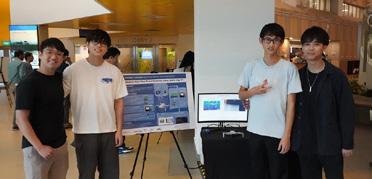
DroneGuard: AI-Driven Real-Time Drone Detection
Lee Xian Hui and Chan Sheng Bin
Bachelor of Engineering (Computer Engineering), Class of 2026 and Class of 2027 respectively
DroneGuard is a real-time drone detection system using Software-Defined Radio and Edge AI, combining RF-based machine learning and computer vision to detect unauthorised drones with over 95% accuracy. Deployed on a Raspberry Pi 5 with a Hailo AI accelerator, it delivers real-time alerts via a web dashboard and Telegram, offering a low-cost, scalable solution for urban surveillance. The team won 1st place at the SONDRA Challenge 2025 and a fully sponsored trip to France for the 6th SONDRA Workshop.
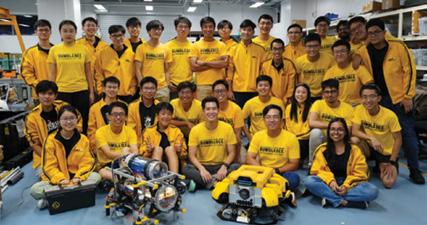
intelligent decision-making and autonomous navigation. They contribute to the design of the software architecture, ensuring seamless interaction between hardware and software, and optimise the integration of AI and machine learning models to enhance the vehicles’ adaptability to changing environments.
Incy Tech: Thermal Floater
Sparsh
Bachelor of Engineering (Computer Engineering), Class of 2026
Incy Tech is a start-up founded by Sparsh to develop a floating solar device that converts sunlight into electricity, offering a sustainable and affordable energy solution. The project was Runner-up at the MIT Climate & Energy Prize Grand Finals, ranking among the world’s top 10 student-led climate ventures, with Sparsh as the only undergraduate finalist from Singapore. Incy Tech also won the London Business School CleanTech Challenge 2025, securing a €20,000 grant to advance its prototype and industry partnerships.
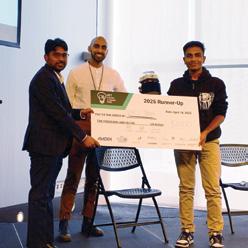
Profiles of Current Students
Chong Kai Jie
Bachelor of Engineering (Computer Engineering), Class of 2028
From Theory to Practice in NUS ECE
“Studying Computer Engineering in NUS ECE sparked my interest in embedded systems through a strong emphasis on hands-on learning. The curriculum balances theory with practical application, and labs and projects made abstract concepts concrete and relevant. What stood out most was the passion and dedication of the teaching staff, who encouraged deep understanding and curiosity beyond grades. This supportive learning environment pushed me to think like an engineer—from low-level hardware details to system-level design—and shaped how I see myself as an engineer today.”
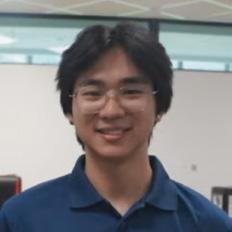
Natalia Elyssa Chan
Bachelor of Engineering (Computer Engineering), Class of 2026

Balancing Rigour, Exploration, and Real-World
Impact
“My journey in NUS ECE has been both intellectually stimulating and deeply rewarding. The programme’s flexible academic structure allowed me to balance rigorous coursework with a vibrant student life, while strengthening my problem-solving skills through real-world engineering challenges. Beyond the classroom, I applied my learning through competitions and projects, including representing Bumblebee Autonomous Systems, which won first place at RoboSub 2025 in California. My involvement in consulting, hall activities, and leadership roles further developed my communication and organisational skills. Overall, NUS ECE shaped both my academic and personal growth, inspiring me to apply engineering to create meaningful impact.”
Profiles of Alumni
Leong Wei Lun, Alfred
Bachelor of Engineering (Computer Engineering), Valedictorian of Class of 2024
Engineering Scholar (E-Scholar)
Transformative Experiences with CEG
“The CEG programme at NUS has been a truly transformative journey. Coming from a Computer Engineering background, I greatly appreciated the hands-on experience of building hardware projects and collaborating in team environments. A highlight of my time here was being part of the Engineering Scholars Programme, where a supportive community and dedicated mentorship fostered both personal and professional growth. The programme’s flexibility allowed me to explore diverse fields such as software engineering, hardware acceleration, and machine learning, ultimately helping me discover my passion and define my career aspirations. Inspired by these experiences, I’m excited to be pursuing a Master’s in Computer Engineering at NUS!”

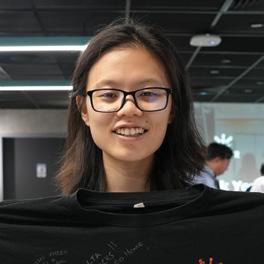
Ng De Qi
Bachelor of Engineering (Computer Engineering), Class of 2025
Friendships Forged Through Engineering
“NUS ECE was where I met some of the most passionate and brilliant engineers—friends for life who continue to inspire me. Through NUS Calibur Robotics, we spent late nights in workshops debugging firmware, celebrated robot matches against the Colorado mountains, and searched industrial markets in Shenzhen for components. These shared challenges and adventures shaped both my engineering journey and lasting friendships. They are experiences I would never trade—and ones that would not have been possible without ECE.”
Admission Requirements
Singapore-Cambridge GCE ‘A’ Level
Pass in H2 Mathematics or Further Mathematics
Admitted students who do not possess A-level H2 Physics or its equivalent are required to read a Physics bridging course.
Polytechnic Diploma
An accredited diploma.
International Baccalaureate (IB) Diploma
Pass in HL MAA
Admitted students who do not possess HL Physics or its equivalent are required to read a Physics bridging course.
NUS High School Diploma
A good major CAP in Mathematics
Admitted students who do not possess a major in Physics or its equivalent are required to read a Physics bridging course.
International Qualifications
Applicants presenting international qualifications may apply with equivalent high school results.

